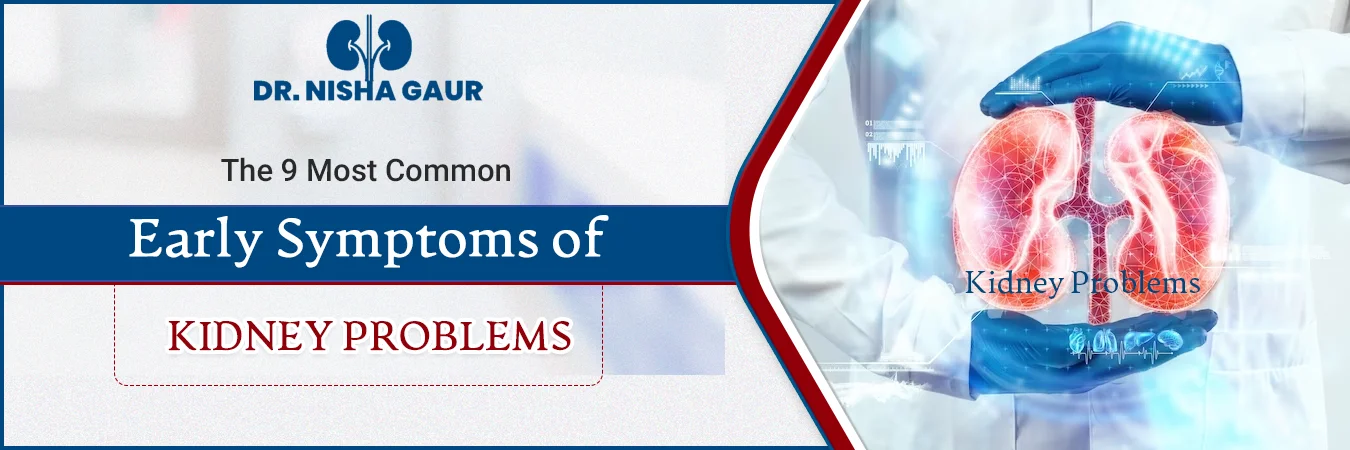Kidney health plays a crucial role in overall well-being, yet many people overlook early warning signs of kidney problems. Identifying symptoms at the onset can help in seeking timely medical advice and potentially slow or prevent kidney damage. Dr. Nisha Gaur, recognized as one of the best nephrologists in Jaipur, shares insights into the early symptoms to watch for and when to consult a healthcare provider.
1. Fatigue and Weakness
One of the earliest signs of kidney problems is feeling fatigued and weak. Kidneys are responsible for filtering waste and producing erythropoietin (EPO), a hormone that aids in red blood cell production. When kidney function declines, the body struggles with reduced red blood cells, resulting in anemia, fatigue, and diminished energy levels. If you’re consistently feeling tired without a clear cause, it’s wise to consult a specialist.
2. Changes in Urine Output and Appearance
Alterations in urine frequency and color are significant indicators of kidney health. People may notice increased urgency to urinate, especially at night (a condition known as nocturia). Additionally, the appearance of the urine may change, appearing foamy or containing blood. If you observe any unusual changes, it’s essential to get a urine analysis to identify potential kidney issues.
3. Swelling in Hands, Feet, and Ankles
Swelling, also known as edema, is common in people with kidney issues. Healthy kidneys balance sodium and fluid levels, but if they start to malfunction, fluid builds up in tissues, causing puffiness in the hands, feet, and ankles. Edema is a visible sign that should not be ignored, as it may point to underlying kidney impairment that requires immediate medical attention.
4. Difficulty Sleeping
Kidney problems can disrupt sleep patterns due to an accumulation of toxins in the bloodstream. Normally, kidneys filter out waste, but reduced kidney function can make it challenging to rid the body of harmful substances, causing restlessness and sleeplessness. Additionally, those with kidney problems may suffer from sleep apnea, a condition marked by breathing interruptions during sleep. If sleep issues persist, consulting a nephrologist can help identify the underlying cause.
5. Persistent Nausea and Vomiting
The buildup of toxins and waste in the body due to poor kidney function can lead to gastrointestinal symptoms such as nausea and vomiting. This is particularly common in advanced stages of kidney disease but can appear earlier as well. Frequent nausea or episodes of vomiting without a clear cause should be addressed by a healthcare professional to assess kidney health.
6. Loss of Appetite and Weight Changes
An early warning sign of kidney disease is a noticeable decrease in appetite, often leading to weight loss. Waste buildup in the bloodstream may reduce the desire to eat and create a metallic taste in the mouth. If you’re experiencing a sudden change in appetite, especially when coupled with other symptoms, it’s important to consult with a nephrologist like Dr. Nisha Gaur for a thorough evaluation.
7. Muscle Cramps and Twitching
Electrolyte imbalances caused by impaired kidney function can result in muscle cramps, especially in the legs. Kidneys regulate levels of electrolytes like calcium, potassium, and sodium. When kidney function declines, these levels may become imbalanced, causing painful muscle cramps and twitching. Chronic or severe muscle cramping should be checked by a healthcare provider to rule out kidney-related issues.
8. Itchy and Dry Skin
Kidneys contribute to skin health by maintaining the right balance of minerals in the blood and eliminating toxins. Poor kidney function can lead to an imbalance in these minerals, causing skin to become dry, itchy, and even prone to rashes. Itchiness may be linked to high levels of phosphorus in the blood, which is commonly seen in kidney disease patients. If you experience persistent skin issues that don’t respond to typical treatments, consider kidney health as a possible factor.
9. Shortness of Breath
Shortness of breath, particularly with minimal exertion, may be a sign of underlying kidney problems. This can occur due to two reasons: fluid buildup in the lungs due to poor kidney function and anemia, which reduces oxygen supply in the body. If you find yourself struggling to catch your breath without a clear cause, it’s advisable to seek a medical consultation to evaluate kidney function.
When to See a Nephrologist
Early detection of kidney problems can help manage symptoms and slow disease progression. If you experience any of these symptoms, especially in combination, it’s essential to consult a specialist. Dr. Nisha Gaur, a leading nephrologist in Jaipur, emphasizes the importance of routine checkups for those at risk, including individuals with diabetes, high blood pressure, or a family history of kidney disease.
How Dr. Nisha Gaur Can Help
Dr. Nisha Gaur specializes in diagnosing and treating kidney conditions at all stages. With a patient-centered approach, she tailors treatments to each individual’s needs, ensuring they receive optimal care. Whether it’s preventive measures or managing chronic kidney disease, Dr. Gaur offers comprehensive solutions to support kidney health.


